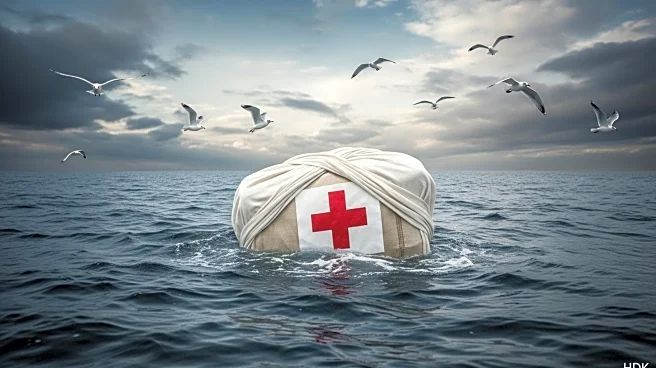What is the story about?
What's Happening?
Israeli forces have detained a group of activists, including the photographer Shahidul Alam, who were aboard an aid flotilla headed for Gaza. The flotilla, consisting of nine boats and 144 people, was intercepted in international waters. The Freedom Flotilla Coalition (FFC) reported that the flotilla was carrying over $110,000 worth of medicines, respiratory equipment, and nutritional supplies intended for Gaza's hospitals. The Israeli Foreign Ministry stated that the flotilla's attempt to breach the naval blockade was unsuccessful, and all passengers are safe and will be deported. The Adalah Legal Centre for Arab Minority Rights in Israel has demanded access to the detainees and challenged the legality of their detention.
Why It's Important?
The interception of the aid flotilla highlights ongoing tensions surrounding the Israeli blockade of Gaza, which has been a point of international contention. The blockade is intended to prevent arms smuggling, but critics argue it exacerbates the humanitarian crisis in Gaza. The detention of activists, including high-profile figures like Shahidul Alam and environmental activist Greta Thunberg, draws global attention to the situation. The incident underscores the challenges faced by humanitarian efforts in conflict zones and raises questions about the balance between security measures and humanitarian needs.
What's Next?
The detained activists are expected to be deported, but the incident may lead to increased international scrutiny of Israel's blockade policies. Legal challenges from organizations like the Adalah Legal Centre could prompt further debate on the legality of the blockade and the treatment of detainees. The international community may call for renewed dialogue to address the humanitarian situation in Gaza, potentially influencing future diplomatic relations and aid efforts.
Beyond the Headlines
The detention of activists on the aid flotilla raises broader ethical questions about the rights of humanitarian workers and the responsibilities of states in conflict zones. The incident may influence public opinion and advocacy efforts, potentially leading to increased support for Palestinian rights and humanitarian initiatives. It also highlights the role of media and cultural figures in drawing attention to global issues, as well as the potential risks they face in conflict areas.
















